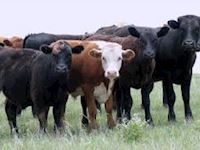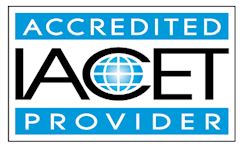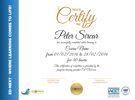Farm Animals and Their Health
Ed-Next
Summary
- Exam(s) / assessment(s) is included in price
Overview
Many people are returning to their roots these days and venturing into one of the oldest professions - farming - but on a smaller scale. Small scale farming is a viable source of side income as well as a great family food source. This course will provide you with resources and information needed to start raising, caring for and profiting from small animals and cattle. You will gain information about every aspect of raising farm animals, from selecting the right animals to harvesting and butchering.
Course media
Description
After completing this course, you should be able to:
- Identify healthy animals to use in production and recall the difficulties and benefits of raising livestock
- Recall the specifics of raising and handling various breeds of waterfowl, turkeys, game birds and rabbits
- List ways to grow your farm with goats, sheep and pigs
- Recognize the necessary steps needed to profit from cattle
Farm Animals and Their Health Module 1 Chapters 1-2
Starting with Your Land and Chickens
Module one provides an in-depth overview of the difficulties and benefits of raising livestock. Will take a look at the beginning stages of farm development, such as selecting the proper land based on what types of animals you’d like to acquire and the associated cost of start-up materials. The proper way to raise chickens to ensure their optimal development and as well as potential health concerns will also be addressed.
- Farm Expenses
- The Difficulties and Benefits to Raising Livestock
- Selecting, Raising and Feeding Your Chickens
- Common Health Concerns
- How to Benefit From Your Investment
Farm Animals and Their Health Module 2 Chapters 3-5
Discovering the World of Waterfowl, Turkeys, Game Birds and Rabbits
Module two explores the specifics of raising and handing various breeds of waterfowl, turkeys, game birds and rabbits. Learning how to prepare for the arrival of these types of animals is essential as it is a thorough process with many components. The proper ways to handle reproduction and caring for the young are essential skills to ensure a healthy and functioning farm.
- Common Breeds
- Selection and Husbandry
- Handling
- Common Health Concerns
- Reproduction and Caring for the Young
Farm Animals and Their Health Module 3 Chapters 6-8
Growing Your Farm with Goats, Sheep and Pigs
Module three addresses all aspects of raising animals that are a bit larger and require more care, such as goats, sheep and pigs. We will take a look at what is involved in selection, breeding and husbandry. Specific handling techniques for the breeds based on size will be looked at, as well as potential health concerns and disease prevention measures.
- Common Breeds
- Various Purposes for Animals
- Selection and Husbandry
- Potential Health Concerns
- Suggested Cage Sizes for Larger Breeds
Farm Animals and Their Health Module 4 Chapters 9-12
Cattle and the Necessary Steps to Profit
Building on the last module, module four focuses on both beef and dairy cows and what is involved in raising these large animals. We will also look into two subjects that can be difficult for a beginner, the subjects of medicating and butchering your livestock. Proper ways to keep cows healthy to increase profit and reproductive health will be covered.
- Common Breeds
- Husbandry, Reproduction and Caring for Calves
- Common Health Concerns
- Administering Medication
- Proper Methods for Butchering your Animals
Ed4Online has been approved as an Accredited Provider by the International Association for Continuing Education and Training (IACET). In obtaining this accreditation, Ed4Online has demonstrated that it complies with the ANSI/IACET Standard which is recognized internationally as a standard of good practice. As a result of the Accredited Provider status, Ed4Online is authorized to offer IACET CEUs for courses and programs that qualify under the ANSI/IACET Standard.
You will earn 2.4 IACET continuing education credits by completing this Ed4Online course. This course is 24 contact hours which equals 2.4 CEUs based on the IACET standard. The International Association of Continuing Education and Training is the highest quality worldwide standard for Continuing Education Unit.
The Continuing Education Unit (CEU) was created by IACET as a measurement of continuing education. One (1) IACET CEU is equal to ten (10) contact hours of participation in an organized continuing education experience under responsible sponsorship, capable direction, and qualified instruction. Under IACET's care, the IACET CEU has evolved from a quantitative measure to a hallmark of quality training and instruction.
Who is this course for?
Anyone interested in animal care
Requirements
No prior qualification required
Career path
Application of principles learnt in this course
Reviews
Currently there are no reviews for this course. Be the first to leave a review.
Legal information
This course is advertised on reed.co.uk by the Course Provider, whose terms and conditions apply. Purchases are made directly from the Course Provider, and as such, content and materials are supplied by the Course Provider directly. Reed is acting as agent and not reseller in relation to this course. Reed's only responsibility is to facilitate your payment for the course. It is your responsibility to review and agree to the Course Provider's terms and conditions and satisfy yourself as to the suitability of the course you intend to purchase. Reed will not have any responsibility for the content of the course and/or associated materials.




